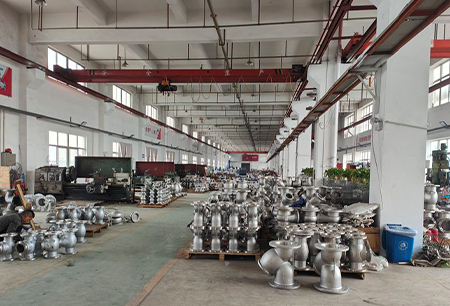rubber flanges manufacturer
The Importance of Rubber Flanges in Industrial Applications
In the realm of manufacturing and industrial applications, rubber flanges play a crucial role. As integral components that facilitate secure and effective connections between different parts of machinery and piping systems, these flanges are indispensable in various sectors including plumbing, automotive, and aerospace industries. This article will delve into the significance of rubber flanges, their manufacturing process, benefits, and how to select the right rubber flange manufacturer for your specific needs.
Understanding Rubber Flanges
Rubber flanges are circular pieces of rubber material with holes around the edge for fastening. They are typically used to create a seal between two components, preventing the leakage of fluids or gases. The flexibility of rubber makes these flanges ideal for applications that require a tight fit, compensating for misalignments or vibrations that can occur during operation.
Rubber flanges can be used in conjunction with various types of piping materials including PVC, metal, and even other rubber compounds. Depending on their application, they can vary in size, thickness, and material composition, making custom manufacturing essential for many users.
The Manufacturing Process
The manufacturing of rubber flanges involves several critical steps. Initially, it begins with the selection of high-quality rubber materials, which may include natural rubber, neoprene, EPDM, or silicone, each chosen based on the specific requirements of the application.
After material selection, the process includes
1. Molding The rubber is shaped into the desired flange dimensions through a molding process. This can involve compression molding, injection molding, or transfer molding, depending on the complexity of the design and the volume of production.
2. Curing Once shaped, the rubber flanges undergo a curing process, also known as vulcanization. This step is crucial as it enhances the mechanical properties of the rubber, ensuring it becomes heat-resistant and durable.
3. Quality Control After curing, the flanges are subjected to rigorous quality control tests. This ensures that they meet industry standards for safety and performance, including checks for size accuracy, surface finish, and flexibility.
4. Finishing Finally, the flanges may undergo additional finishing processes such as machining or coating to improve their performance characteristics, ensuring they can withstand specific environmental conditions or pressures.
Benefits of Rubber Flanges
Rubber flanges offer several advantages over their metal counterparts, making them a preferred choice for many industries
rubber flanges manufacturer

- Flexibility The inherent flexibility of rubber flanges allows them to provide a tight seal even when there are slight misalignments in the connected components
.- Corrosion Resistance Unlike metal flanges, rubber does not corrode, making them suitable for applications involving corrosive substances or extreme environments.
- Vibration Absorption Rubber flanges can absorb vibrations, which reduces the stress on connected components and prolongs their lifespan.
- Cost-effectiveness Rubber flanges are often less expensive than metal alternatives, particularly for large-scale applications or where frequent replacements are necessary.
- Customizability Manufacturers can create custom rubber flanges to meet specific pressure ratings, chemical resistances, and dimensional requirements.
Choosing the Right Manufacturer
Selecting the right rubber flange manufacturer is crucial to ensure quality and performance. Here are some factors to consider
1. Experience Look for manufacturers with a proven track record in producing rubber flanges for your specific industry.
2. Quality Standards Ensure that the manufacturer adheres to industry standards such as ISO certification, which ensures that their products meet international quality benchmarks.
3. Customization Capabilities Verify that the manufacturer can offer custom solutions tailored to your specific requirements.
4. Customer Support A reliable manufacturer should provide excellent customer service, assisting with product selection, technical support, and post-purchase services.
5. Reputation Research customer reviews, testimonials, and case studies to gauge the manufacturer's reputation in the market.
Conclusion
Rubber flanges are vital components that enhance the efficiency and safety of industrial operations. By understanding their significance, benefits, and manufacturing process, businesses can make informed decisions regarding their use. Partnering with a reputable rubber flanges manufacturer ensures a supply of high-quality products that meet the diverse demands of various applications. In a constantly evolving industrial landscape, investing in effective sealing solutions like rubber flanges is an essential step toward operational success.
-
High-Security Lockable Gas Valve - Tamper-Proof ControlNewsAug.30,2025
-
Reliable Hydraulic Valves for Efficient Fluid ControlNewsAug.29,2025
-
Reliable Electric Actuators for Industrial Valve AutomationNewsAug.29,2025
-
Premium Line Blind Valves for Secure Pipeline IsolationNewsAug.29,2025
-
Premium Electric Valves for Smart Fluid Control SolutionsNewsAug.29,2025
-
Precision Balanced Valves for Optimal System PerformanceNewsAug.29,2025
-
Heavy-Duty Flanged Butterfly Valves for Water SystemsNewsAug.29,2025




